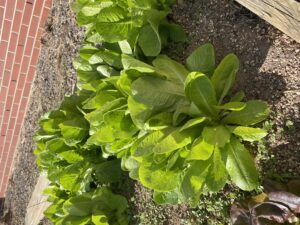4-H Secures Grant Funding for Elementary Schools
go.ncsu.edu/readext?753171
en Español / em Português
El inglés es el idioma de control de esta página. En la medida en que haya algún conflicto entre la traducción al inglés y la traducción, el inglés prevalece.
Al hacer clic en el enlace de traducción se activa un servicio de traducción gratuito para convertir la página al español. Al igual que con cualquier traducción por Internet, la conversión no es sensible al contexto y puede que no traduzca el texto en su significado original. NC State Extension no garantiza la exactitud del texto traducido. Por favor, tenga en cuenta que algunas aplicaciones y/o servicios pueden no funcionar como se espera cuando se traducen.
Português
Inglês é o idioma de controle desta página. Na medida que haja algum conflito entre o texto original em Inglês e a tradução, o Inglês prevalece.
Ao clicar no link de tradução, um serviço gratuito de tradução será ativado para converter a página para o Português. Como em qualquer tradução pela internet, a conversão não é sensivel ao contexto e pode não ocorrer a tradução para o significado orginal. O serviço de Extensão da Carolina do Norte (NC State Extension) não garante a exatidão do texto traduzido. Por favor, observe que algumas funções ou serviços podem não funcionar como esperado após a tradução.
English
English is the controlling language of this page. To the extent there is any conflict between the English text and the translation, English controls.
Clicking on the translation link activates a free translation service to convert the page to Spanish. As with any Internet translation, the conversion is not context-sensitive and may not translate the text to its original meaning. NC State Extension does not guarantee the accuracy of the translated text. Please note that some applications and/or services may not function as expected when translated.
Collapse ▲The average student is three generations removed from the farm and has little to no knowledge of where their food comes from. 4-H addresses this need through Soil Solutions School Enrichment, providing a hands-on learning experience for children to grow their own food in raised-bed school gardens. The gardens at two of three elementary schools are aging and will not adequately meet the needs of growing class sizes. None of the current garden structures are handicap-accessible.
Madison County 4-H applied for Go Outside (GO) Grants through the NC Outdoor Heritage Advisory Council, on behalf of Brush Creek and Mars Hill Elementary Schools, to secure funding for the school gardens. We worked with the principals and teachers to create a vision for improving the gardens to ensure the future of quality gardening experiences at school through 4-H Soil Solutions School Enrichment. We also prioritized adding handicap-accessible raised beds so that all children have equal access to growing their own food.
Both schools were awarded the full amount of funding requested, totaling $9,085. Mars Hill Elementary received $5,300 and Brush Creek Elementary received $3,785. N.C. Cooperative Extension of Madison County worked with Madison County Schools to purchase and construct these new gardens. Having functioning gardens ensures the continued success of 4-H Soil Solutions School Enrichment for about 120 students at both schools, where many learn to grow food for the first time.




